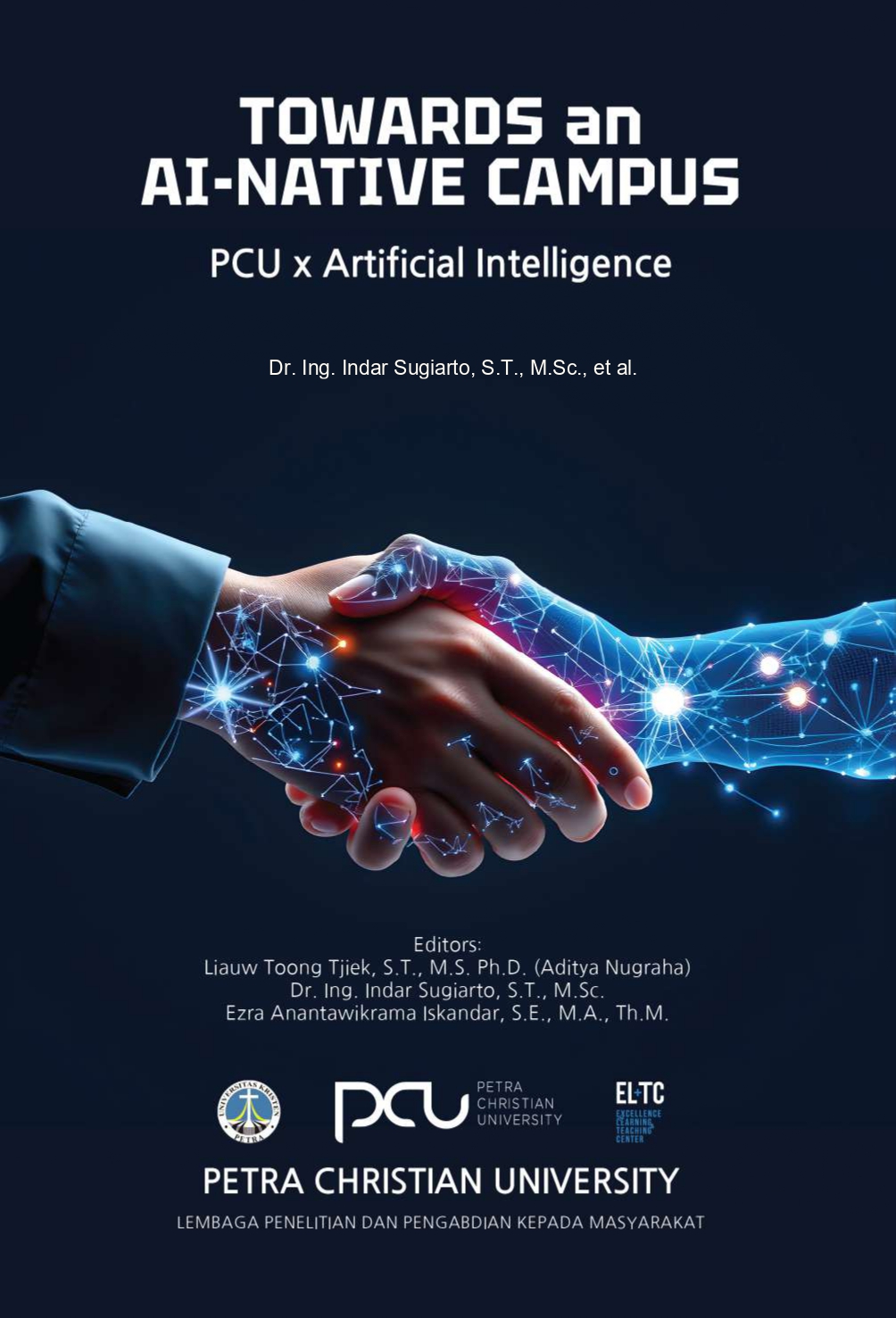
Author: Dr.Ing. Indar Sugiarto, S.T., M.Sc., Leo Willyanto Santoso, S.Kom., M.IT., Dr. Aniendya Christianna, S.Sn., M.Med.Kom., Dr. Bramasta Putra Redyantanu, S.T., M.T., Stephanus Wirawan Dharmatanna, S.T., M.Arch., Leenawaty Limantara, Ph.D., Henry Novianus Palit, S.Kom., M.Kom., Ph.D., Olivia, S.E., M.A., John Lenard Villarde, Retno Ardianti, Josua Tarigan, Elvina Shanggrama Wijaya, S.T., M.T., Maria Nala Damajanti, S.Sn., M.Hum., Dibya Adipranata Hody, S.E., M.M., Felecia, S.T., M.Sc., Liauw Toong Tjiek, S.T., M.S., Ph.D., Prof. Dr. Njo Anastasia, S.E., M.T., Ar. Gunawan Tanuwidjaja, S.T., M.Sc., Ph.D., IAI., Eka Christian, S.Pd., Evanti Andriani Suwndi, S.T., Sastra Budiharja Santoso, S.Psi., M.Th., Dr. Linda Bustan, Purnama Esa Dora Tedjokoesoemo, S.Sn., M.Sc., Grace Setiati Kattu, S.Sn., M.Ds., Luri Renaningtyas, S.T., M.Ds., Dr. Dra. Yuli Christiana Yoedo, M.Pd.
Editor: Liauw Toong Tjiek, S.T., M.S. Ph.D. (Aditya Nugraha), Dr. Ing. Indar Sugiarto, S.T., M.Sc., Ezra Anantawikrama Iskandar, S.E., M.A., Th.M.
Publisher: Lembaga Penelitian dan Pengabdian kepada Masyarakat
Published: 2025
ISBN: xxx-xxx-xxxx-xx-x (PDF)
Pages: 244
Synopsis: This book compiles a number of articles written by student and lecturers at Petra Christian University (PCU) in Surabaya, Indonesia. It contains various stories about their active efforts to embrace Artificial Intelligence (AI), moving towards an AI-Native Campus where technology is integrated across various disciplines to enhance learning and productivity. AI is viewed as a powerful tool for students and educators, not as a replacement for human intelligence or creativity.
The various articles in this book share how PCU faculty members have attempted to leverage AI for diverse course assignments, including multimedia projects, conversational AI chatbots, architectural simulations for wind and solar analysis, and even fashion collection development. AI facilitates the exchange of ideas, information retrieval, content creation, and career exploration, thereby enhancing the efficiency and speed of all these processes. In architectural design, AI helps visualize concepts from text prompts and accelerates design iterations, resulting in more informed and innovative solutions. In a study conducted by a graduate student and faculty members, AI was found not to automatically impact teachers’ increasingly innovative work behavior.
The articles also highlight the need for human oversight and ethical awareness in AI use. Concerns discussed include overreliance that may reduce critical thinking and analytical skills, potential inaccuracies or ‘hallucinations’ in AI-generated content, and biases in data, particularly in the visual representation of human identity. The PCU lecturers emphasize the importance of human verification, critical thinking, ethical awareness, and responsible AI use to maximize its positive impact while mitigating risks that may arise from AI use. The goal of all these efforts is to prepare students to become ‘maestro’ who can utilize AI wisely, foster adaptation, innovation, and deeper learning, while ensuring that human qualities such as empathy and intuition remain at the center.
